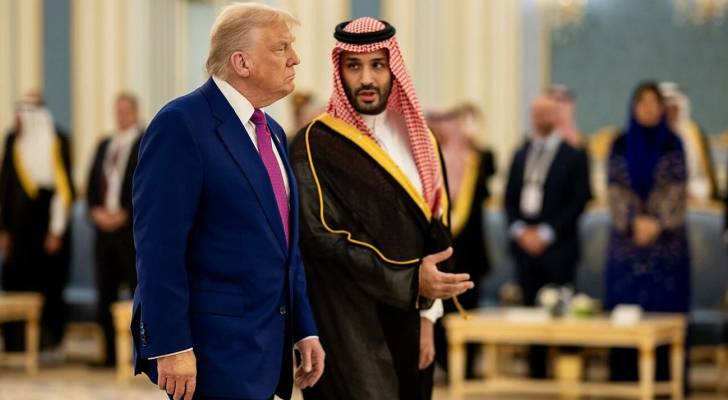Donald Trump with Saudi Crown Prince Mohammad Bin Salman on May 13, 2025
Trump's Gulf visit sparks concern in 'Israel'
US President Donald Trump’s recent visit to the Gulf has triggered growing concern among 'Israeli' political and military circles, amid signs of a significant shift in Washington's Middle East policy that could come at the expense of 'Israeli' interests, according to the Hebrew-language newspaper Yedioth Ahronoth.
Skipping Tel Aviv and Direct Talks with Hamas
The newspaper reported that alarm in Israeli Occupation escalated after Trump chose not to visit Tel Aviv during his tour, a move seen as signaling a potential change in US regional priorities.
Adding to the unease was news of direct negotiations between the United States and Hamas over the release of American-'Israeli' captive Aidan Alexander—an unprecedented move that Tel Aviv reportedly finds deeply troubling.
Iran Nuclear Talks and Potential Concessions
Yedioth Ahronoth also pointed to increasing US flexibility in ongoing nuclear talks with Iran. 'Israeli' officials fear Washington may settle for what they describe as a "bad deal"—one that allows Iran to retain its uranium enrichment capabilities and continue developing its nuclear program, possibly in exchange for lifting sanctions.
Strained Relations with Netanyahu
Amid these developments, the paper cited growing frustration from Trump toward 'Israeli' Prime Minister Benjamin Netanyahu, despite the public expressions of strong ties between the two leaders.
Lifting Sanctions on Syria
Trump also made a “historic” decision during his visit—lifting sanctions on the Syrian regime, despite vocal 'Israeli' opposition and Netanyahu's warnings about repeating "tragedies akin to the October 7 attack." However, the report clarified that 'Israel' does not view the move as a direct affront, noting that Syria was not a central topic in the recent US discussions.
Optimism for a New Iran Deal
Speaking in Qatar, Trump expressed strong optimism about reaching a new nuclear agreement with Iran, stating that Tehran had “almost” accepted the deal’s terms and describing the talks as “very serious,” aimed at achieving long-term peace. This, once again, raised alarms in 'Israel' over the potential for Iran to strengthen its nuclear and military capabilities under such an agreement.
Gaza as a “Free Zone”
Regarding Gaza, Trump denied that his visit marginalized 'Israel', reaffirming his commitment to a US plan for the coastal enclave. While the plan has faced broad Arab opposition leading to its temporary shelving, Trump said he believes the US should intervene to turn Gaza into a “free zone,” hinting at broader American ambitions to reshape the territory’s future.




